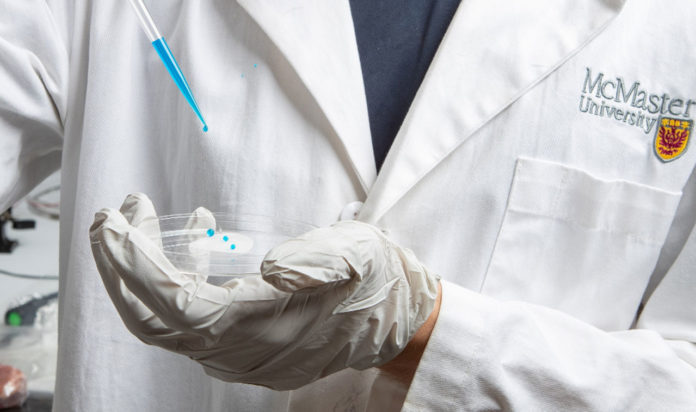Engineered surfaces that reduce the adhesion, proliferation and spread of bacteria have promise as a mean of preventing infections and reducing the use of antibiotics. To address this need, scientists created a flexible plastic wrap that can repel all forms of bacteria, preventing the transfer of antibiotic-resistant superbugs and other dangerous bacteria in settings ranging from hospitals to kitchens.
Enlivened by the water-repellent lotus leaf, the new surface works through a blend of nano-scale surface engineering and chemistry. The surface is finished with tiny wrinkles that exclude all external molecules. A drop of water or blood, for instance, bounces away when it lands superficially on the surface. The same is true for bacteria.
Furthermore, scientists chemically treated the surface to enhance its repellent properties further, resulting in a barrier that is flexible, durable, and inexpensive to reproduce.
Leyla Soleymani, an engineering physicist, said, “We’re structurally tuning that plastic. This material gives us something that can be applied to all kinds of things.”
Tohid Didar, who collaborated with colleagues from McMaster’s Institute for Infectious Disease Research, said, “We can see this technology being used in all kinds of institutional and domestic settings. As the world confronts the crisis of anti-microbial resistance, we hope it will become an important part of the anti-bacterial toolbox.”
The material was tested using two of the most troubling forms of antibiotic-resistant bacteria: MRSA and Pseudomonas. Scientists found that the material was effective for reducing biofilm formation of World Health Organization-designated priority pathogens Gram-positive methicillin-resistant Staphylococcus aureus (MRSA) and Gram-negative Pseudomonas aeruginosa by 87 and 84%, respectively. Also, the surfaces remain free of bacteria after being touched by a contaminated surface with Gram-negative E. coli.
As scientists noted, “The treated material is also ideal for food packaging, where it could stop the accidental transfer of bacteria such as E. coli, Salmonella and listeria from raw chicken, meat and other foods.”
“It can be shrink-wrapped onto door handles, railings, IV stands, and other surfaces that can be magnets for bacteria such as MRSA and C. difficile.”
The study is published today in the journal ACS Nano.
